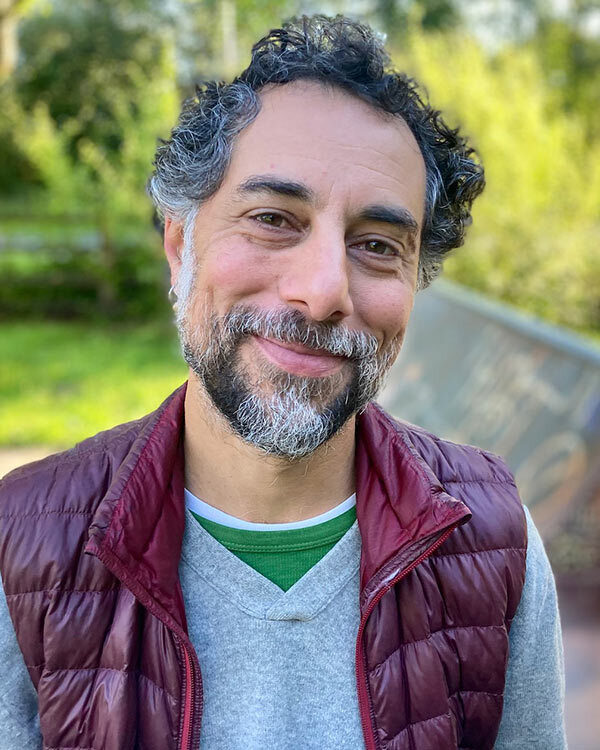Lovingkindness, or mettā, is one of the most beloved practices in our tradition. Alongside mindfulness, in which we give wise attention to every experience that arises moment to moment, in mettā we practice radiating friendliness to every living being imaginable. This training in universal well-wishing unfolds, in the style most often taught at Spirit Rock, through a series of categories.
We send mettā to our teachers or benefactors, ourselves, close friends, neutral people, difficult people, and then to all beings, gradually expanding the circle of care to encompass the entire world, and even beyond. Mettā can be beautiful, challenging, and profoundly transformative, promising to the wounded, hopeful heart a vaster love than we ever thought possible. It is the practice of unconditional peace: in our hearts, offered to the entire world.
Many of us are watching the terrible war in Ukraine, and including the victims—innocent Russians as well as Ukrainians—in our mettā practice. This is an expression of the neutral persons category of the brahmavihāra (“divine abidings”), and comes naturally to the heart, which is said to “quiver” in response to suffering. It’s not easy, however, to take the practice further, to the category of the difficult person, if that means sending lovingkindness and compassion to the people ordering such devastating violence. It may not even feel appropriate to do so! But without this aspect of the practice, we can never truly wish well to all beings. Some will always be left out.
Thich Nhat Hanh wrote, in Being Peace, about working in Vietnam during the war and maintaining compassion for people on both sides of the conflict. “We tried to be open to both, to understand this side and to understand that side, to be one with them. That is why we did not take a side, even though the whole world took sides.”
The brahmavihāras take us out of the comfort zone of only caring for our close friends and community, and beyond the relatively easy stretch of caring for people we don’t know but perceive as good, into the charged territory of sending kindness to those we might feel do not deserve it. Thich Nhat Hanh is open about the risks of this kind of unconditional compassion: “Working to help people in a circumstance like that is very dangerous, and many of us got killed. . . . But we did not want to give up and take one side.”
Some of the most powerful images in the current war are of acts of kindness that reach across the political boundary. A group of Ukrainians give tea to a captured Russian soldier and help him phone his mother. Thousands of Russians protest the invasion knowing the high risk of dissent in their country at this moment. The practice of sending lovingkindness, compassion, joy, and equanimity to the difficult people in our world crosses a border constructed in our own hearts: the idea that some people deserve care and others don’t. Once we are willing to open our hearts beyond that ancient bias, the full power of brahmavihāra practice becomes available to us. As the Mettā Sutta invokes:
Even as a mother protects with her life
Her child, her only child,
So with a boundless heart should we cherish all living beings,
Radiating kindness over the entire world,
Spreading upwards to the skies and downwards to the depths,
Outwards and unbounded,
Freed from hatred and ill will. (Sn 1.8)
As we cultivate the practice of mettā and the other brahmavihāras, we bring ourselves face to face with the tendency to take sides, and are invited to grow beyond it. We may still act in defense of those victimized by violence, and must sometimes hold strong boundaries to protect ourselves and others, but the baseline of the heart can still be kindness. “Man is not the enemy,” Thich Nhat Hanh reminded his friends working for peace in Vietnam. “The only thing worthy of you is compassion—invincible, limitless, unconditional.”
This month’s Dharma teachings include talks or meditations on each of the four brahmavihāra: lovingkindness, compassion, sympathetic joy, and equanimity, plus gratitude, sometimes called the “fifth brahmavihāra” for its power to awaken connection and open the heart. Rev. Liên Shutt, Donald Rothberg, Amana Brembry Johnson, Fresh Lev White, James Baraz, Oren Sofer, and Pawan Bareja explore these qualities of the awakened heart, inviting us to cultivate what beloved Spirit Rock teacher Sylvia Boorstein calls “natural benevolence.”
May our practice be for the benefit of all.
